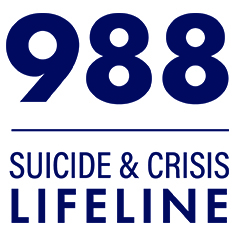These clinical support tools are intended to help providers comply with the VA/DoD Clinical Practice Guideline for the Management of Post-traumatic Stress. The tools bring together resources for providers, patients and family members which support comprehensive, evidence-based treatment of PTSD. The tools, which contain recommendations on screening, diagnosis, psychotherapy, pharmacotherapy, referrals, and patient and family education, comprise: Understanding Posttraumatic Stress Disorder; PTSD Provider Tool; Implementing the 2010 VA/DoD Clinical Practice Guideline for Post-traumatic Stress: A Guide for Clinic Leaders; Experiencing PTSD as a Family Booklet; Understanding PTSD Booklet and PTSD Pocket Guide.
Resource Types: Brochure/Booklet
People recover (educational comic book: co-occurring disorders)
This resource uses a comic book format to tell the story of people who are dealing with co-occurring disorders. Presents a hopeful message of recovery for people with a substance use disorder and mental illness, and provides resources for more information.
Safety plan quick guide for clinicians: Veterans version
Pocket guide to developing a safety plan, a prioritized written list of coping strategies and sources of support.
Life is Sacred Actionable Knowledge Product Suite
The Life Is Sacred (LIS) Native Youth Suicide Prevention Materials include the Life is Sacred Family Brochure and the Children Are Our Greatest Resource PowerPoint slides. Guidelines and talking points for both the brochure and the PowerPoint slides are provided. Talking points for the Family Brochure were developed to serve as conversation starters between parents and those who interact with them (and their children) in various roles. The slides can be used in presentations to Tribal Council, community groups, prospective funders, schools, or other stakeholders.
Disaster mental health intervention field guide
This brief guide is geared toward first responders so that they can provide emergency mental health services and psychological first aid in the event of a disaster. Provides guidance on referrals, dealing with different age groups, handling trauma and communicating in a crisis.
Should you talk to someone about a drug, alcohol, or mental health problem?
Lists questions consumers can ask themselves to help them decide whether to seek help for a substance abuse problem, a mental health issue, or both. Urges those who answered “yes” to any of the questions to seek help and lists resources for more information.
Management of mental health emergencies
Emergencies and crises occur in the practice of every mental health clinician, often without warning. The experienced clinician may have some notion of potential danger with certain kinds of patients, however, those with histories of violent and/or self-harm or destructive behaviors require special handling. This pamphlet provides some structure for making more accurate assessment, and subsequent decisions, for management and treatment.
American Indian and Alaska Native culture card: A guide to build cultural awareness

Intended to enhance cultural competence when serving American Indian and Alaska Native communities. Covers regional differences; cultural customs; spirituality; communications styles; the role of veterans and the elderly, and health disparities, such as suicide.
Supportive families, healthy children: Helping families with lesbian, gay, bisexual & transgender (LGBT) children
Developed by the Family Acceptance Project (FAP) at SF State University, the Supportive Families, Healthy Children: Helping Families with Lesbian, Gay, Bisexual & Transgender Children booklet is a research-derived resource that educates diverse families on how to support their LGBT children; provides key prevention information for a range of readers; and teaches providers how to talk with families about decreasing risk for suicidality and related risks among LGBT youth and young adults. The booklet includes family stories and lists of specific accepting and rejecting behaviors that FAP research has shown to be significantly related to suicidal behavior. The booklet presents research results and recommendations to decrease risk and promote well-being for LGBT youth and young adults in an easy-to-read and easy-to-understand style for families from a range of backgrounds, including diverse religious backgrounds, with a version for Church of Jesus Christ of Latter-day Saints (Mormon) families.
The Supportive Families, Healthy Children booklet was created with guidance from over 100 ethnically, socially and religiously diverse families with LGBT children, diverse LGBT youth, and their health, mental health and social service providers, with the help of multi-cultural literacy specialists. The English version and cultural translations of the booklet in Spanish and Chinese were piloted with ethnically diverse families, who provided guidance and feedback.
Objective:
Those who read the Supportive Families, Healthy Children booklet will have:
- Increased awareness of how to support LGBT children, youth and young adults.
- Increased knowledge of the relationship between specific family accepting and rejecting behaviors during adolescence and the health, mental health and well-being of LGBT young adults, including suicidality, depression, substance use and sexual health risks.
- Increased knowledge of how to talk with parents, foster parents and caregivers about decreasing an LGBT adolescent’s risk for suicide and related-health risks and promoting their well-being (for providers).
- Increased basic knowledge about sexual orientation and gender identity in children and adolescents.
Implementation Essential:
Information about local services and resources should be included when disseminating the Supportive Families, Healthy Children booklet.
Suicide Assessment Five-Step Evaluation and Triage SAFE-T Pocket Card
The SAFE-T card guides clinicians through five steps which address the patient’s level of suicide risk and suggests appropriate interventions. It is intended to provide an accessible and portable resource for the mental health professional whose clinical practice includes suicide risk assessment. The card lists key risk and protective factors that should be considered in the course of completing the five steps and addresses both adult and adolescent populations.
The Suicide Assessment Five-step Evaluation and Triage (SAFE-T) pocket card provides protocols for developing treatment plans and interventions responsive to the risk level of patients. It also includes brief triage and documentation guidelines.
The SAFE-T pocket card should only be used by healthcare and mental healthcare professionals, and those who have otherwise been trained to work with those at risk for suicide.
